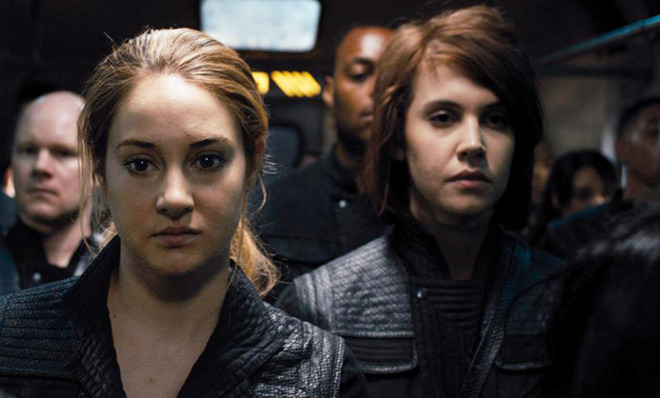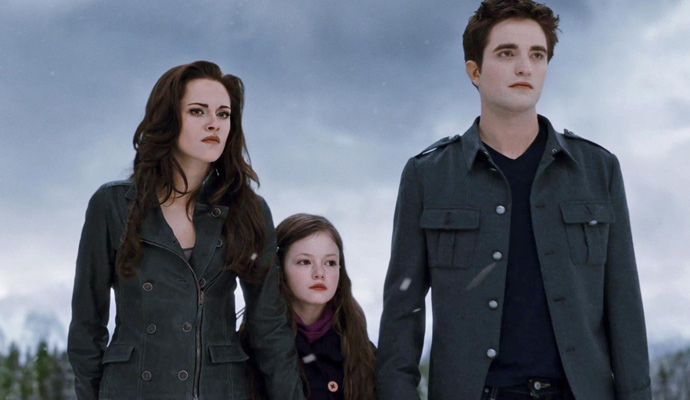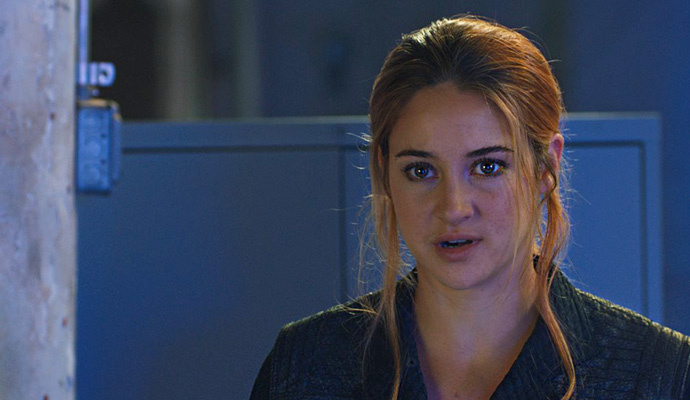Girls on Film: How Divergent breaks new ground in the YA genre
Unlike Twilight or The Hunger Games, Divergent centers its narrative on the growth of a distinctly human girl


A free daily email with the biggest news stories of the day – and the best features from TheWeek.com
You are now subscribed
Your newsletter sign-up was successful
It began with a little film called Twilight, which was refused by studio after studio until a relatively small shingle called Summit decided to bite. Their $37 million investment created a phenomenon that broke records and transformed young, female heroes into box-office moneymakers — an impressive feat in an industry increasingly invested in older male superheroes.
Most of Hollywood's subsequent Twilight-copying attempts have failed. The Mortal Instruments couldn't survive the parody that made the original books controversial in fanfic circles, and made the film a ridiculous parody to critics. Adaptations like Beautiful Creatures, The Host, and Ender's Game could barely make back their production budgets. Only The Hunger Games managed to thrive, surpassing The Twilight Saga and the beloved Harry Potter films to become cinema's most successful YA series.
Now this week's Divergent is primed to enter the mix, with early pre-release sales suggesting a box office hit (despite tepid early reviews). And if Divergent turns out to be a smash, The Twilight Saga, The Hunger Games, and Divergent will form a fascinating collection of young women in film, from the supernatural to the most innately human.
The Week
Escape your echo chamber. Get the facts behind the news, plus analysis from multiple perspectives.

Sign up for The Week's Free Newsletters
From our morning news briefing to a weekly Good News Newsletter, get the best of The Week delivered directly to your inbox.
From our morning news briefing to a weekly Good News Newsletter, get the best of The Week delivered directly to your inbox.
The trend began not with heroism, but with obsession. In The Twilight Saga, Bella Swan was a human in a world full of rock-hard and dangerous vampires, powerless to do anything other than selflessly sacrifice herself for the safety of others. Bella didn't embody the positive messages one expects from young-adult narratives; she embodied all of the hormonal darkness of young obsession and love. That made legions of fans question her, and many more relate to her. Her romantic obsession thrust her into the spotlight of ongoing danger, and the only way out — the only way to become a hero — was to give up her humanity in favor of supernatural vampirism.

This choice made her one of the most skilled and powerful vampires in the series. In her first days, she found self-control that even the strongest vampire would struggle with over decades, and learned to expand her innate powers to not only protect herself, but also her allies. She stresses the inevitability of this decision; she never quite fit in her klutzy human body, but felt immediately at home in her new vampiric form. Still, it came at the ultimate price: Not only her life, but also her humanity.
The Hunger Games immediately differentiated itself from the much-maligned vampire series, even if its heroine boasted many similarities to Bella Swan. Katniss Everdeen is a strong young woman who stands out from most people in her district. When she sacrifices herself for her family, it's to fight. But humanity and will aren't enough. Katniss is able to differentiate herself as a fierce competitor due to the seemingly elvish archery skills she perfected in stolen moments outside District 12. Her ability not only protects her, but also earns her the attention and support she needs to buoy her own fame and succeed.
But Katniss' success is a superficial one. She is a strong fighter who can wow the masses with her mad archery skills, but she is always and irrevocably a puppet controlled by the people around her, from her closest loved ones to the hated political powerhouses vying for control of Panem. Katniss' monomythic story is cut short. She never has the freedom to live because The Hunger Games is about the destruction of a hero — the price and consequence of revolt and war.
A free daily email with the biggest news stories of the day – and the best features from TheWeek.com
Bella had to give up her humanity to be a hero, and Katniss' heroism was manufactured and dismantled — but Tris' heroic arc in Divergent is fueled by her humanity. Tris chooses to become strong, to fight, and ultimately, how she will live her life. She doesn't have to become superhuman, and she isn't destroyed by political manipulation. She is, in a word, divergent.
Divergent, quite simply, means well-rounded humanity. This new series focuses on a post-apocalyptic Chicago where people are forced to accentuate one attribute and live by it: Selflessness (Abnegation), peacefulness (Amity), honesty (Candor), bravery (Dauntless), or intelligence (Erudite). Most of the population easily falls into one category, except for the Divergent, who display attributes from all five factions — and thus threaten to destroy this precarious ecosystem. Tris is powerful because she is well-rounded, and she chooses to explore that power when she chooses to be Dauntless.
Divergent relishes in its exploration of Tris' evolution. The camera closely captures her face as she experiences the dread of the unknown and the exhilaration of facing fear. We watch her try, fail, struggle, and slowly rise to the challenge. This realistic girl becomes the hero through hard work, transforming herself from a failure into a powerhouse. The only innate skill she possesses is how quickly and easily she can defeat the hallucinations constructed to categorize her and make her scared, and that's not because of preternatural skill — it's simply her ability to control her fear and recognize the difference between hallucination and reality.

In other words, Tris' humanity makes her a hero. Her power is the result of her independent will and hard work, which forms the backbone of the series. Where The Hunger Games uses one girl to look at larger systems, Divergent takes a cue from Twilight and focuses on one girl's interior. It simply wants to watch a girl become powerful and realistically relatable.
Unfortunately, this means character above clarity, structure, and all else — which is why critics are already struggling with it (and why even if Divergent is successful, it won't have the same genre-breaking resonance as The Hunger Games). The film is so enamored with Tris' rise to power that it eschews some of the foundational elements that would make it appeal to a larger audience.
But that's precisely why it resonates. Divergent's missteps are really no different than an epic film that focuses on the spectacle, the action, or the effects over the story. Audiences are willing to trade in a well-rounded piece of cinema for a specific kind of indulgence. They're just not used to that indulgence being young female power.
It's foreign to watch a young woman command a film where she ponders big life choices, makes a shocking decision, and fights to make it a reality. We're not used to watching a girl find power in practice. Our female heroines always have some preternatural skill, power, or prowess that sets them apart, which has long been a requirement for getting woman on the screen and into action roles. They can make bullets bend, or were imbued with special Slayer powers, or were made from stone by Goddesses. If utterly human, they've honed their bodies and become so skilled that they seem supernatural.
That's why Divergent is so important. We have seen girls find power in fantasy. We've seen them fight for agency in a desolate world. But now we finally get to see a protagonist be a hero for nothing more than the fact that she's a girl.
Girls on Film is a weekly column focusing on women and cinema. It can be found at TheWeek.com every Friday morning. And be sure to follow the Girls on Film Twitter feed for additional femme-con.
Monika Bartyzel is a freelance writer and creator of Girls on Film, a weekly look at femme-centric film news and concerns, now appearing at TheWeek.com. Her work has been published on sites including The Atlantic, Movies.com, Moviefone, Collider, and the now-defunct Cinematical, where she was a lead writer and assignment editor.
-
 Democrats push for ICE accountability
Democrats push for ICE accountabilityFeature U.S. citizens shot and violently detained by immigration agents testify at Capitol Hill hearing
-
 The price of sporting glory
The price of sporting gloryFeature The Milan-Cortina Winter Olympics kicked off this week. Will Italy regret playing host?
-
 Fulton County: A dress rehearsal for election theft?
Fulton County: A dress rehearsal for election theft?Feature Director of National Intelligence Tulsi Gabbard is Trump's de facto ‘voter fraud’ czar
